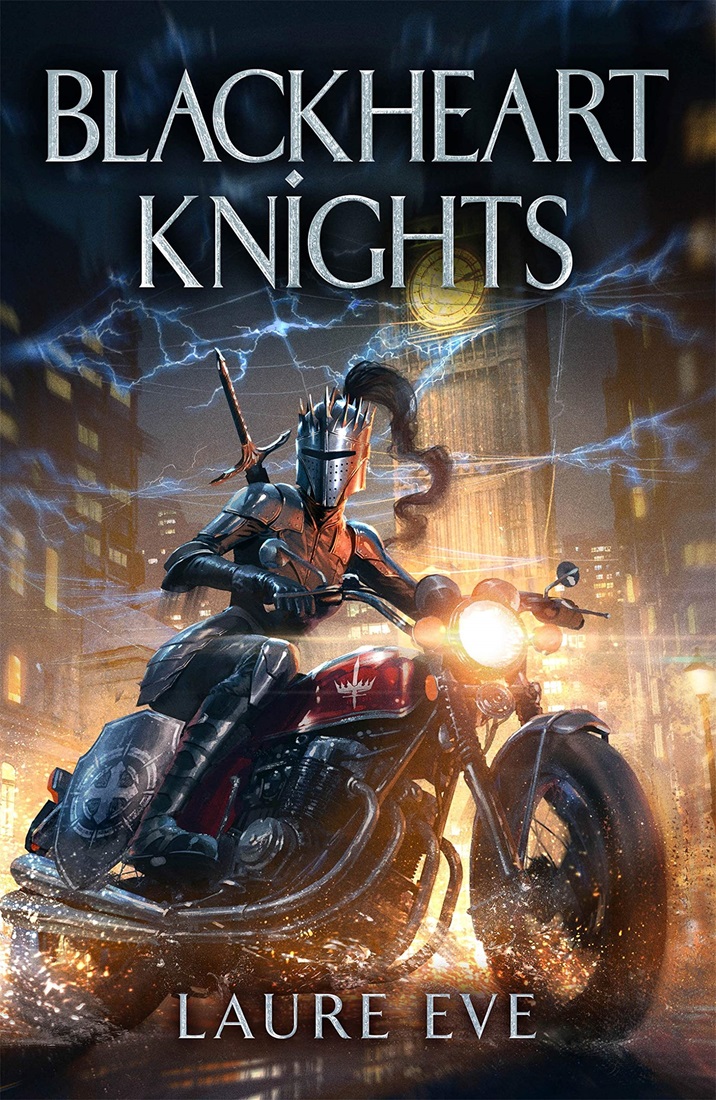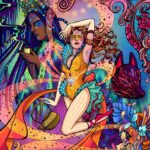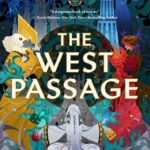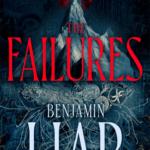
Genres: Fantasy, Queer Protagonists
Representation: Bi/pansexual MC, nonbinary secondary characters, sapphic secondary character, queernorm world
ISBN: 9781529411911
Goodreads

Power always wins.
Imagine Camelot but in Gotham: a city where knights are the celebrities of the day, riding on motorbikes instead of horses and competing in televised fights for fame and money.
Imagine a city where a young, magic-touched bastard astonishes everyone by becoming king - albeit with extreme reluctance - and a girl with a secret past trains to become a knight for the sole purpose of vengeance.
Imagine a city where magic is illegal but everywhere, in its underground bars, its back-alley soothsayers - and in the people who have to hide what they are for fear of being tattooed and persecuted.
Imagine a city where electricity is money, power the only game worth playing, and violence the most fervently worshipped religion.
Welcome to a dark, chaotic, alluring place with a tumultuous history, where dreams come true if you want them hard enough - and are prepared to do some very, very bad things to get them . . .
"A riveting tragedy of blood and desire - and the coolest thing you'll read this year"
― Samantha Shannon, author of The Bone Season and The Priory of the Orange Tree"The boldest, smartest, most adventurous fantasy I've read in ages - and it's really f**ing fun"
― Krystal Sutherland, author of Our Chemical Hearts"Arthurian legend meets urban fantasy in a brilliant, bloody wild ride"
― Jay Kristoff, No.1 New York Times and Sunday Times bestselling author
Highlights
~King Arthur, but motorbikes!!!
~King Arthur, but queer people exist!!!
~knights as rockstars
~you should definitely listen to the fortune-teller, actually
~magic graffiti
Perhaps you love the King Arthur mythos. Perhaps you hate it. Perhaps you’ve actually managed to be an English-speaker who’s never heard of it at all.
It really doesn’t matter which, because whatever camp you fall into, I think you’ll love Blackheart Knights. Because it’s a retelling that manages to honour and draw heavily from the ‘canon’ (if the King Arthur story can be said to have a canon, which I’m not sure it really can) while being so original, so itself, that you can forget about it being a retelling at all if you want to. It stands on its own with or without the ‘canon’ to back it up – and it’s standing across from you in the fighting ring, with its sword drawn, telling you to bring it.
Laure Eve has created a brilliant world not quite like anything I’ve ever seen before. The landmass that is Scotland-England-Wales is divided up into multiple kingdoms, of which London is the most powerful and influential. But the setting isn’t medieval; there are knights, but they ride motorbikes, not horses, and though they fight with swords, guns are absolutely a thing. There’s magic, but the people who can use it – godchildren – wear monitoring bands around their wrists and are tattooed at 18 so people can identify them. Fashion trends are set by rockstar knights; legal disputes are decided in an official arena, where the champions of each party fight until the Saints grant the deserving side their victory. Televisions are ‘glow-screens’, and over the course of the book we see them go from being an expensive rarity to something every household owns. And London itself is divided into districts, each ruled over by one of the seven families descended from the Saints who established the modern world.
It’s strange, and delightfully different, and it’s so beautifully cohesive. Eve’s London is so real you can almost touch it, all the disparate parts coming together in a perfectly organic whole. No part of it ever rang false or unrealistic or there Just Because. It all works.
And so does the story. Stories, really, because Blackheart Knights is made up of two storylines, following two different characters. The first is Art, who is very clearly Eve’s take on King Arthur; he’s the illegitimate son of King Uther, his conception was surrounded in scandal and magic, and he was raised outside of London, away from its politics. The book opens with him and his friends being surprised by the news of Uther’s death, and the revelation that Art is now, kind-of-sort-of-but-very-temporarily, King. Temporary, because London’s monarchy isn’t decided by blood; the new King (or Queen) will be determined by the Saints, as each noble family puts forward their champion, and the winner of the subsequent tournament takes the crown. And while Art originally has no intention of putting any champion forward – having no desire to be King – his friends convince him of the good he could potentially do in the role, and so he goes through with it.
It’s not really a spoiler to tell you that his champion wins, is it?
The second storyline starts years later and follows Red, a young woman whose dramatic arrival into London’s knight-scene wins her a spot in a real knight’s stable, where she’ll either get through her training and become a true knight – not some wannabe playing dress-up – or wash out. But Red isn’t going to wash out: she’s on a mission, and nothing on earth is going to stop her from completing it.
Blackheart Knights alternates between the two plotlines chapter by chapter, and although the chapters aren’t named, they are headed by timestamps: 18 years ago, 4 years ago, six months ago, etc. It works incredibly well both because it doesn’t drag the story out – we don’t see every minute of Art growing into a King, but the time-skips are effectively placed, showing us exactly what we need to see – the most important bits, and the most interesting. The same goes for Red; we get to follow her training without having to slog through every minute of it ourselves, but we still get to see the pivotal moments, still get to experience the parts that really matter.
Adrenalin leaves shaves of metal in her blood, cutting her up on the inside.
The timestamps also work as a countdown, building up the tension like the timer on a bomb. The pacing is flawless, but bit by bit the timelines come closer and closer – not just to Now, but closer to each other. There’s the sense that the storylines are powering towards each other like screeching trains, the certainty that there’s going to be one hell of a collision, but right up until the final pages I couldn’t see what it was going to be, couldn’t see how the two were connected. I notoriously don’t see twists coming, so smarter readers than me might put it together long before I did – but I was on the edge of my seat right up to the last page, and kudos to Eve for it.
I loved absolutely everything about this book. There isn’t one thing I’d change, nothing I want to critique. Eve’s prose is tight and polished, elegant as the swordsmanship of a top-tier knight, action and description in perfect balance with each other. Her cast is brilliant, and not only are they brilliant, but we get to see them grow and change and I loved that too; the soft edges of Art’s idealism being honed into something sharper as the reality of ruling sets in; Red’s brittle ferocity struggling to hold onto its shape, her drive tempered somewhat by the emotional connections she makes as she builds a life for herself in London. Every single one of the side-characters were just as three-dimensional, wholly themselves rather than just agents for the plot; nonbinary and stubbornly honourable Garad, sharp and cynical Lillath, yielding Orcade, tricksy Dario, Belisade with all her unexpected depths. I might not have adored every character as a person, but from a writing perspective? All the way down to the most minor, they’re flawless.
‘We made up honour and justice to beat back the dark in our own hearts, but the universe doesn’t care about our desperate little stories. The universe has never heard of honour.’
And I was surprised, but really happy, when I realised that Eve had no intention of using the ‘original’ names for her characters – you won’t find a Merlin or Guinevere or Morgana among the lot. Some of the characters, I could guess at who they’d been inspired by – Art, aka Artorias Dracones, is clearly Arthur, and I’m tentatively sure of a few others. Most of the time, I had no clue. And even where I guessed, it’s a case of Eve drawing inspiration from the ‘canon’, not giving an old character a new name – the character filling Morgana Le Fay’s role isn’t Morgana, not any iteration of Morgana you can think of: she’s herself, even if a few bits of her character or plotline echo the idea of Morgana. (And Eve’s reinterpretation of the whole Lady of the Lake thing is unmitigated GENIUS.) This really, really worked for me, because it reinforced the idea that this is a new story, something I haven’t seen before. I don’t know, using new names is a tiny detail, a tiny change, but it makes a huge difference and I’m glad.
What else can I say? I love Blackheart Knights. The first thing I did once I’d finished was fling myself at Google to find out if there was going to be a sequel (there is, it’s a duology, and the sequel is officially at the top of my Must-Haves list). It’s gorgeous, neon and magic together, the knight’s Code alongside motorbikes and televised sports and fashion icons. It took me places I didn’t expect to go, showed me things I hadn’t imagined before. I never knew what was going to happen next, and I absolutely didn’t want it to end. I loved it. I loved every moment of it. It’s unquestionably one of the best books of the year.
Go read it!!!






Leave a Reply